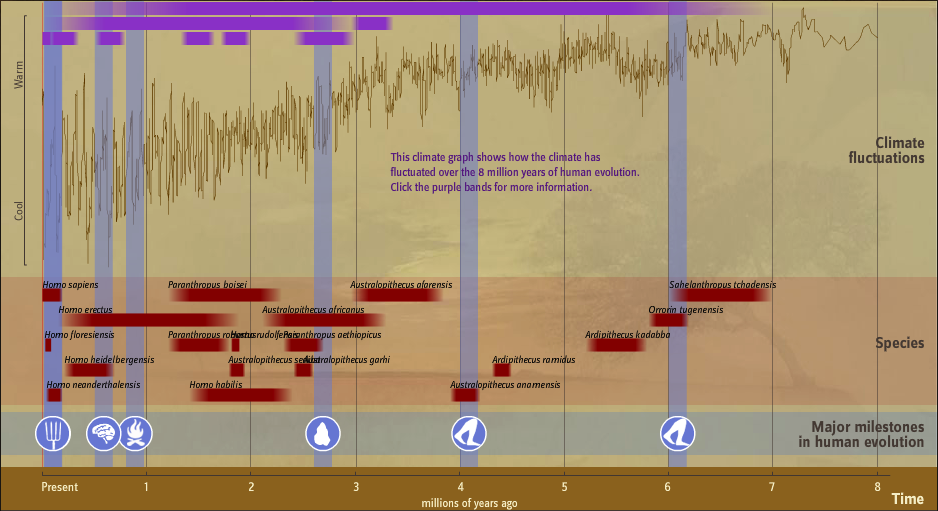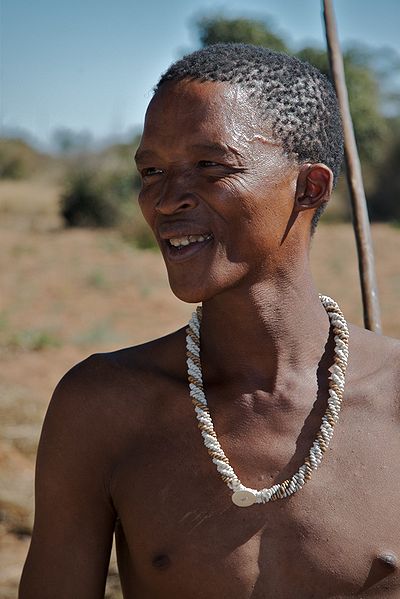Urbanism is Weird
From economics to urbanism, I believe every contemporary topic can be looked at through the lens of human history (which is why I prefer to retain the “Anthropologist” part of my urban title). After all, what better way to start discussing human systems (i.e. cities) than with humans? While anthropology is the study of man, it must include our origins – namely our evolution from our fellow members of the animal kingdom. In fact it is often crucial that we remember most importantly, when it really comes down to it, we are animals. As much as we’d like to ignore this fact sometimes, it is indeed our reality, and has significant implications for the way we create our built environment.
To begin with, Biology
To discuss this, we need to begin with biology. In the study of natural science, we find that all animals evolve to occupy their very specific niche within the natural (or more recently, man-made) environments. This can mean something as simple as being nocturnal where others are not, or vice versa, but it can even mean something as specific as being active only during twilight – that is, only during dawn and dusk (also known as crepuscular). In the rainforest, there are dozens (if not hundreds) of species which never even touch the forest floor. Their niche is so far up in the trees and so completely sustainable within that space that they never need to venture below, nor would they last long if they did. Their physiological systems are such that they adapted to their physical environment and climate and only that niche within it, be it treetops, the ocean, the atmosphere, or the desert (etc.) in order to fit within the larger system.
When placing animals in manufactured habitats, we therefore take into serious consideration what that animal is supposed to be in – what their environment is based on their niche in the natural world. Gerbils like to dig because they’re normally making burrows in sandy soil, and so we give them lots of bedding in their cages for them to do so, and so on (and as a former gerbil owner, I can attest to this). The question then is: why isn’t this the same for humans and the design of our habitats? Personally I think it can be summarized in this lack of anthropological context. If we think of ourselves as inherently different from animals, then we tend to pay less attention to this concept of environmental determinism – or the effect of the environment on the inhabitants. While controversial (for many reasons) it is still a serious thing to consider at least as a partial reality when examining the built environment and its effect on humans.
Homo sapiens sapiens
When considering the history of mankind (and its lead up to urbanism), we also need to contemplate the history of the world, if only for a moment. In the approximately 4.5 billion years the earth has been around, mammals have only been evolving since about 160 million years ago (the middle Jurassic Period). Thinking in this scale, it is mind-boggling to realize that modern man (anatomically modern humans, or homo sapiens sapiens) have only been around for the last 200,000 years. While we evolved through other members of the genus homo before this, and of course primates before that, this was when we really started to stand out in the animal kingdom. Narrowing the gap even further, however, we find that humans only began displaying the behavior common to contemporary man about 50,000 years ago - literally a blink in the span of history thus far.
And then there’s urbanism. While exact dates for the origins of urbanism vary on location and even the definition of urbanism (another topic for discussion!), generally speaking the first settlements started showing up at around 9,000-7,000 BCE, or about 11,000 years ago. Up until this point, humans had lived their entire evolutionary history as hunter-gatherers – typically groups of 10-50 moving from place to place taking advantage of the resources in one area before moving on to another. We never stayed in one place for long because we were utilizing our niche as animals able to track and hunt local game, gather fruit and nuts, maybe boil some tubers, and make tools and clothing. By changing our location we were able to exploit the abundance of that particular place and then allow it to replenish as we moved to another. This meant there was a lack of permanent structures, heavy objects (due to travel), and luxury goods (like pottery, or you know, iPhones). The big shift came during the Neolithic or Agricultural Revolution. One of several notable revolutions in our history (digital revolution, anyone?), a diverse set of circumstances eventually led to humans becoming more dominant and (literally) putting down roots worldwide.
Urbanism is Weird
And this brings me to the major point. Taking the timeline listed above, if we were to look at the history of the world as a clock, we’d see it wasn’t until ten seconds to midnight that humans began walking this earth. Further, in those last ten seconds it was only in the very last millisecond that we started using agriculture and settling down in cities. When viewed through the lens of anthropology (and science more generally), urbanism is absurd! And this is coming from an urbanist! How did we get to this point of rapid expansion and dense living when literally all of our history up until this point was spent in small roaming family bands foraging for fruit?
In a word: agriculture.
In more than one word, there are several theories as to why we started living our lives in exactly the opposite way that we had been all that time. In the Fertile Crescent in what is now the middle east, cities seem to have started forming in connection with the cultivation of the land there. In this period of human history, mankind was asserting dominance over other animals and even driving some to extinction. Perhaps the sudden abundance of people pushed them to settle in singular locations at last? Maybe cultivating seeds was an accidental discovery made independently over time and only became easier to utilize when sedentary? Then again, maybe the discovery of cultivation (grains in particular) incentivized ancient man to settle and switch tactics for feeding their people. (And still others think it could have been large gatherings that necessitated food surplus and therefore permanent settlements.) Either way, after utilizing these excesses that agriculture brought them, mankind was officially headed down the path to urbanization (and world domination), nature be damned.*
Everything we do is new
A recent article at The Atlantic Cities sums this up nicely: cities are like nothing else in nature. We humans are literally in control of our own environment at this point. Everything we do is outside the realm of an environmental niche. While we do have a fairly standard human scale as well as states of being that evolutionarily we seem to favor (making a street like a “room” is a good example), we no longer have an ideal state that we “naturally” fit in and can therefore attempt to emulate as we create our surroundings (our proverbial hamster cage, as it were). Our environment is truly our own creation and this is incredible once you realize the scale of human existence (nevermind how much we've done in the last century). We are making our own niche in the world. We invented these cities we inhabit. And most importantly, we have the power to make these new, weird, and unnatural things wonderful places to live in.
*Note: Not everyone became urbanized. Some hunter gatherer societies still exist today (!Kung and San to name a few) and some societies happily became sedentary foragers staying in place but never utilizing large-scale agriculture (Pacific Northwest and regions in Japan in particular).




